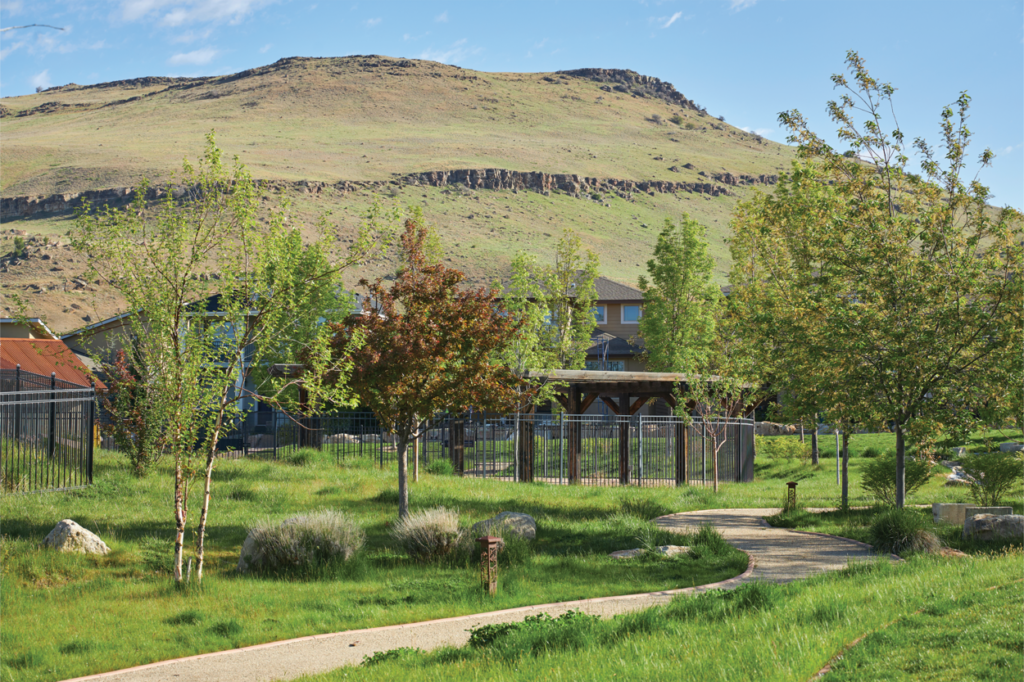With a recent appeal to the Idaho Supreme Court, the litigation surrounding the Harris Ranch CID (HRCID) appears to finally be headed to a resolution. Still, a date for the hearing before the Supreme Court is not yet set and this latest legal maneuver is sure to extend the wait for development of parks and other amenities well into 2024. The continued extension of this litigation begs the question as to who is promoting this delay and why? And do they represent the wishes of Harris Ranch homeowners?
The Harris Ranch CID Taxpayers’ Association (HRCIDTA) bills itself as a group of homeowners with a grievance against the operators of the HRCID and the HRCID itself. Adjudication through the legal system is certainly their right, but the group has only two public-facing members – Larry Crowley and William (Bill) Doyle – and lacks many components common to grassroots organizations of this sort. With no website, signage, or campaigning of any kind beyond word of mouth in the community and internal messaging, the public is left to decipher the many quotes from Crowley and Doyle provided to the media and at public hearings. With no external communication or advocacy efforts, it appears all funds raised from supporters are going to attorneys executing the group’s many legal actions. 
Your Barber Valley wrote about Larry Crowley and the misinformation he provided at a HRCID Board Meeting in July 2021. Crowley is also a Commissioner on the City of Boise’s Public Works Commission, tasked with advising the City of Boise, including its City Council. This public position would seemingly put Crowley at odds with himself, as he is charged with providing sound guidance to the Boise City Council on Public Works matters all the while leading a group suing those same Council members who also serve as members of the HRCID Board.
Bill Doyle has a shorter history in Boise. From public records, it appears that Doyle moved to Idaho in 2019 from California. Doyle was an attorney in the Bay Area until 2018 when he was suspended from practicing law in the state by the State Bar Court of California for two separate incidents.
The organization Crowley and Doyle oversee — the HRICDTA — brought 16 claims against the HRCID in a 2022 lawsuit. The HRCIDTA was denied on all 16. Their request for rehearing was also denied. It is unclear why they would expect a different decision from the Idaho Supreme Court. Further challenging their claims against the validity of CIDs are the recent expansions of other CIDs in the Treasure Valley, including $300 million in CID projects for 8,700 homes in Avimor and at least $156 million for 7,100 homes in Valnova (formerly Spring Valley). With these other CIDs moving forward and with prior legal determinations validating the legality of those CIDs and the CID statute itself, the odds are stacked against the HRCIDTA. Crowley, Doyle, and the HRCIDTA are now betting that their arguments are correct and that the opinions of the Idaho State Legislature, two Ada County judges, the HRCID Board, the local governments who considered petitions to form CIDs (including the City of Boise, the City of Eagle, and Ada County), and developers of both Avimor and Valnova are collectively in the wrong.
President Eisenhower once said, “The supreme quality for leadership is unquestionably integrity.” With no new public information, neighbors financially supporting the HRCIDTA have reason to question whether continued opposition is worth the time and cost.
Perhaps more will be learned about the group as its day in front of the Idaho Supreme Court is scheduled. A recent article from BoiseDev on the HRCIDTA’s appeal to the Idaho Supreme Court said that the publication had filed a records request for information around a rumored settlement offer, which may shed light on how the group operates and its motives. Until then, the general public is left to wonder at why the HRCIDTA and its leadership are continuing this campaign.

